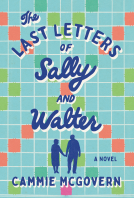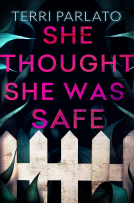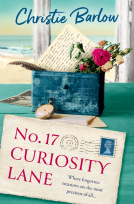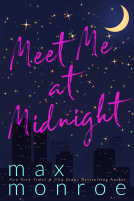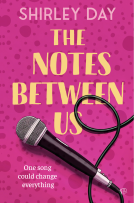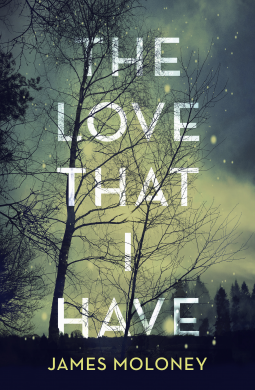
The Love That I Have
by James Moloney
This title was previously available on NetGalley and is now archived.
Send NetGalley books directly to your Kindle or Kindle app
1
To read on a Kindle or Kindle app, please add kindle@netgalley.com as an approved email address to receive files in your Amazon account. Click here for step-by-step instructions.
2
Also find your Kindle email address within your Amazon account, and enter it here.
Pub Date May 21 2018 | Archive Date Jul 03 2018
HarperCollins Publishers Australia | HarperCollins AU
Talking about this book? Use #TheLoveThatIhave #NetGalley. More hashtag tips!
Description
'WINTER CALLS FOR A GOOD BOOK, AND WE'VE FOUND ONE TO RIVAL THE BOOK THIEF'
- The Australian Women's Weekly
Margot Baumann has left school to take up her sister's job in the mailroom of a large prison. But this is Germany in 1944, and the prison is Sachsenhausen concentration camp near Berlin.
Margot is shielded from the camp's brutality as she has no contact with prisoners. But she does handle their mail and, when given a cigarette lighter and told to burn the letters, she is horrified by the callous act she must carry out with her own hands. This is especially painful since her brother was taken prisoner at Stalingrad and her family have had no letters from him. So Margot steals a few letters, intending to send them in secret, only to find herself drawn to their heart-rending words of hope, of despair, and of love.
This is how Margot comes to know Dieter Kleinschmidt - through the beauty and the passion of his letters to his girlfriend.
And since his girlfriend is also named Margot, it is like reading love letters written for her.
From award-winning Australian author James Moloney, comes a fresh and compelling story about love, loss and profound bravery. For fans of The Book Thief, this powerful and heartbreaking story set during WW2 stays with you long after the final page is read.
MORE PRAISE FOR THE LOVE THAT I HAVE:
'a beautiful, heartbreaking and affecting read. ... Definitely one for book club, just don't forget the tissues.' - Australian Women's Weekly
'a heartbreaking, harrowing and deeply hopeful story ... for readers of The Book Thief, The Boy in the Striped Pyjamas' - Books+Publishing
'A compelling and emotionally charged story of young love and survival, bravery and humanity. The closing months of the Second World War in Germany are seen from a surprising and fresh perspective. I was holding back tears from page 72.' - Shona Martyn, Spectrum Editor, The Sydney Morning Herald
Available Editions
| EDITION | Other Format |
| ISBN | 9781460754634 |
| PRICE | A$25.45 (AUD) |
| PAGES | 304 |
Average rating from 13 members
Featured Reviews
 Brenda T, Reviewer
Brenda T, Reviewer
Margot Baumann was sixteen years of age when she began working in the mailroom of the concentration camp close to her home. Germany 1944 and Margot knew Hitler was great, and the Jews were not. Her parents, two brothers – who were both fighting for the fatherland – and sister Renate along with Margot had no reason to believe otherwise. But in the mailroom, it was her job to burn the letters the Jews wrote to their loved ones, and gradually Margot’s horror at the cruel burning of letters, as well as the treatment the prisoners were receiving changed her views.
But when Margot slipped a few letters into her pocket, her only intention was to forward them on – until she read one. The prisoner Dieter Kleinschmidt was writing a love letter to his girl who was in Auschwitz – her name was also Margot. And so, Margot’s deception began…
What would be the outcome once the war was over? What would happen to those prisoners-of-war?
The Love That I Have by Aussie author James Moloney is my first by this author, and what a wonderful, heartfelt and emotional journey he took me on. Love, loss, courage and bravery; this phenomenal WWII story will stay with me for a long time to come. The ending was exceptionally well done – I have no hesitation in highly recommending The Love That I Have to fans of historical fiction.
With thanks to NetGalley and the publisher for my digital ARC to read and review.
“The dead should know they are loved.”
This book shattered and mended my heart so many times that I think I’ll be feeling the effects of it for many months to come.
Beginning in the late stages of WWII, this story centres around a typical young woman, who’s Pro-Hitler attitude is rattled to the core when she takes a job in the mailroom of the Sachsenhausen Concentration Camp. Devastated at the lack of correspondence from her POW brother in Stalingrad, she begins to read the letters of the prisoners, with the intention of sending them to their intended recipients and through them she learns that:
“There’s love in all of us, that it’s a human thing and pays no attention to race or religion.”
Moloney has expertly captured the desolation and despair of so many lives affected by the atrocities committed in this war. And having visited the Dachau Concentration Camp myself (almost 11 years ago now), it evoked the memories of the sorrow and the turmoil I felt while walking through that camp.
The Love That I Have, is a deeply moving tale about the power of the written word, and how, when infused with love, can help to feed a soul, even when all else appears to be lost.
Many thanks to James Moloney, HarperCollins Australia, and NetGalley for the opportunity to read an ARC of this compelling story in exchange for an honest review.
What an absolutely moving love story set in one of the most terrible times and places in history. I found this hard to put down whilst at the same time there were times I didn't want to read any further as my heart was breaking. I think this story and the feelings it has left in me will stay with me for quite a while.
Thanks to NetGalley and HarperCollins publishers for a copy in return for an honest review.
